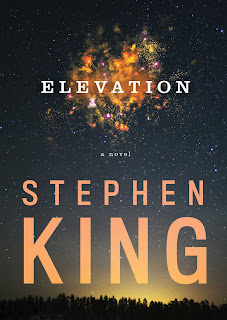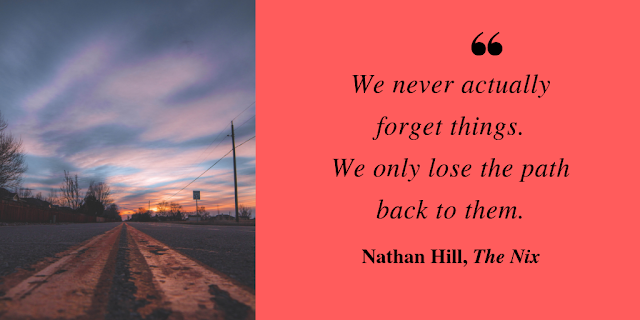I'm wrapping up another year of this little book project and it's so fun to look back at the books I've read this year. I'm under last year's total (56!), as I just started my 45th book of the year last night. Barring some unexpected New Year's Eve reading binge, I'll end 2018 with 44 complete books read. In what has been a really busy year personally and professionally, I'll take it. I didn't set out to read a book a week like I did in 2017, but I found a need to keep that pace (or close to it.) I found myself getting twitchy if it took me more than a week to finish a book.
Some months were better than others. I read six books in August, but I was on vacation at the lake and did little more than read on the beach. I only read one book in September, which I can attribute to a busy work schedule and getting back into the back-to-school routine with the kids. Overall, I'm happy with my year of reading. And, coming up with the list of my favorites was easier than expected. I read some duds this year and read some masterpieces. And, I'm so glad I keep this blog because some books, I don't even remember reading!
Here's my top 5, which actually includes seven books (it's my blog and I'll cheat if I want to.) These weren't necessarily new books in 2018, just books I read this year. Maybe it will inspire you to read one of them in 2019!
1. Beartown and Us Against You. Yes, these are two books. But, they're a package deal. Us Against You is the sequel to Beartown and you really can't read one without the other. They tell the story of a junior hockey team and the community that surrounds them. They're about sports and life and tragedy and heartbreak. They're beautiful and perfect and among the best two books I've read, not only this year, but ever. Fredrik Backman is a brilliant genius and two of his books were on my favorites list last year, too. Read these - read all of his books. You'll thank me later.
2. The Music Shop I can only describe this as the perfect little book with incredible characters, a sweet story and a Spotify playlist that goes with it. I knocked it out in a day and, as I said in my original review, I felt like this book had been waiting for me my whole life. How can you go wrong with a neighborhood record store and a little love story? If you love music and characters, read this book today. But, fire up the Spotify playlist when you do.
3. The Nix This was more than just a book, this was an experience. I suppose that's what you deserve when you invest time into a 620-page book. But, heavy as it was to lug around the house, it never felt long. The Nix is the kind of book you miss when you finish it. It's about a guy whose mother abandons him at a young age and the strange crime she commits that brings them back together. In between, you learn about a family's history, a protest movement, video games, Choose Your Own Adventure books and how to write like a total badass. It's not just good, it's exceptional. I wish I could read it for the first time all over again.
4. House of Broken Angels "Despite a sad setup, House of Angels hums with joy." I'm not smart enough to write that sentence, but that's how an NPR book review describes this incredible book. That sad setup is that Big Angel, the patriarch of a Mexican-American family, is ready to die. But, he has a lot of other stuff to take care of first. What happens in these pages is the "other stuff" that gets in the way between birth and death. It's the stuff that really matters. As a reader, you just get to go along for the ride, meeting larger-than-life characters along the way. This book should be a movie, but it doesn't need to be because the author paints it all so vividly, you feel like you're living it right there with them. It really snuck up on me and stuck with me even more than I expected. I looked back at the review I wrote with a smile, remembering all that joy.
5. The Power Would this book resonate so powerfully in the years before the MeToo movement? Hard to say. The fact of the matter is this book hit shelves at precisely the right time. What would happen if women had all the power? If by simply channeling an electricity inside them, they could render men helpless? The Power explores that reality. You find yourself cheering, then bracing yourself as you worry it will all go horribly wrong? It's a story that explores the idea of absolute power corrupting absolutely. Powerful is an understatement.
Honorable Mention: Turn Around, Bright Eyes
I can't celebrate a year of great reads without mentioning Rob Sheffield. I love this guy and all he writes. I read two of his amazing books this year - this one and Talking to Girls About Duran Duran. Both were fantastic. Sheffield is a music writer and a pop culture wizard. This book follows up Love is a Mixed Tape, in which he writes of music's role in his grief over the sudden death of his young wife (one of my favorite books I read last year). This book shows us life after that loss, as he moves to New York and tries to start over. It's about love and loss and grief and karaoke. I loved every word and every cheesy song reference.





































